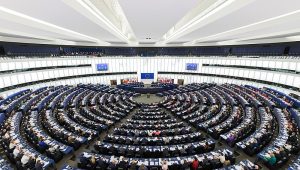Are ChatGPT Chats Private? Understanding Privacy Implications of AI

In today's digital age, privacy concerns are at the forefront of many people's minds. As artificial intelligence (AI) becomes increasingly integrated into our daily lives, questions about data protection and confidentiality arise. One particular area of interest is the privacy of conversations with AI language models like ChatGPT. In this article, we'll explore the question: Are ChatGPT chats private?
What is ChatGPT?
Before diving into the privacy aspects, let's briefly explain what ChatGPT is. ChatGPT is an advanced language model developed by OpenAI, designed to generate human-like text based on input prompts. It can engage in conversations, answer questions, and assist with various tasks, making it a powerful tool for both personal and professional use.
The Privacy Concern: Are ChatGPT Chats Private?
The short answer to whether ChatGPT chats are private is: it's complicated. While OpenAI has implemented measures to protect user privacy, there are several factors to consider when evaluating the privacy of your conversations with ChatGPT.
Data Collection and Storage
OpenAI collects and stores conversation data from ChatGPT interactions. This data is used to improve the model's performance and train future iterations. However, the company states that they take steps to protect user privacy:
1. Anonymization: OpenAI claims to anonymize the data they collect, removing personally identifiable information.
2. Limited retention: The company says they only retain data for a limited time.
3. Opt-out option: Users can request to opt-out of having their data used for training purposes.
Despite these measures, it's important to note that your conversations are not entirely private, as they are collected and stored by OpenAI.
OpenAI's Privacy Policy
OpenAI's privacy policy (https://openai.com/policies/privacy-policy) outlines how they handle user data. Key points include:
- Collection of usage data, including conversations with ChatGPT
- Use of data for research, product improvement, and development of new services
- Sharing of data with third-party service providers and affiliates
While OpenAI states that they take privacy seriously, users should be aware that their conversations are not completely confidential.
Potential Security Risks
As with any online service, there are potential security risks associated with using ChatGPT:
1. Data breaches: Although OpenAI implements security measures, no system is entirely immune to data breaches.
2. Unauthorized access: There's always a risk of unauthorized access to stored conversation data.
3. Legal requests: In some cases, OpenAI may be compelled to share user data with law enforcement or government agencies.
How to Enhance Privacy When Using ChatGPT
While ChatGPT chats are not entirely private, there are steps you can take to enhance your privacy:
1. Avoid Sharing Sensitive Information
The most effective way to protect your privacy is to avoid sharing sensitive personal information in your conversations with ChatGPT. This includes:
- Full names
- Addresses
- Social Security numbers
- Financial information
- Medical details
2. Use ChatGPT Anonymously
When possible, use ChatGPT without creating an account or logging in. This can help reduce the amount of identifiable information associated with your conversations.
3. Regularly Clear Your Chat History
If you use ChatGPT through the OpenAI website, regularly clear your chat history to minimize the amount of data stored on your account.
4. Be Mindful of Context
Remember that ChatGPT doesn't have access to your personal information unless you provide it. Be cautious about sharing contextual information that could be used to identify you.
5. Stay Informed About Privacy Policies
Keep yourself updated on OpenAI's privacy policies and any changes they make. This will help you make informed decisions about how you use the service.
The Broader Implications of AI and Privacy
The question "Are ChatGPT chats private?" raises broader concerns about AI and privacy in general. As AI systems become more sophisticated and integrated into our lives, we must consider the following:
Data Ownership and Control
Who owns the data generated through AI interactions? This question becomes increasingly important as AI models learn and improve based on user inputs.
Transparency in AI Systems
There's a growing call for greater transparency in how AI systems collect, use, and store data. Users should have a clear understanding of what happens to their information.
Regulatory Frameworks
As AI technology advances, there's a need for updated regulatory frameworks to protect user privacy and ensure responsible AI development.
The Future of Privacy in AI Conversations
As we consider whether ChatGPT chats are private, it's important to look towards the future. Here are some potential developments that could impact privacy in AI conversations:
Enhanced Encryption
Future iterations of AI language models may incorporate end-to-end encryption, providing greater privacy for user conversations.
Decentralized AI
Decentralized AI systems could allow users to run language models locally, reducing the need to share data with centralized servers.
Privacy-Focused AI Models
We may see the development of AI models specifically designed with privacy as a core feature, offering users more control over their data.
Conclusion: Balancing Innovation and Privacy
In conclusion, while ChatGPT chats are not entirely private, OpenAI has implemented measures to protect user privacy. However, it's crucial for users to be aware of the privacy implications and take steps to protect their sensitive information.
As AI technology continues to evolve, the balance between innovation and privacy will remain a critical issue. Users, developers, and policymakers must work together to ensure that AI systems like ChatGPT can continue to provide valuable services while respecting individual privacy rights.
Remember, the question "Are ChatGPT chats private?" is part of a larger conversation about data privacy in the digital age. By staying informed and taking proactive steps to protect our information, we can help shape a future where AI and privacy coexist harmoniously.
References and Sources:
1. OpenAI Privacy Policy: https://openai.com/policies/privacy-policy
2. Electronic Frontier Foundation - "AI and Privacy": https://www.eff.org/issues/ai
3. Nature - "The privacy implications of large language models like ChatGPT": https://www.nature.com/articles/d41586-023-00340-6








